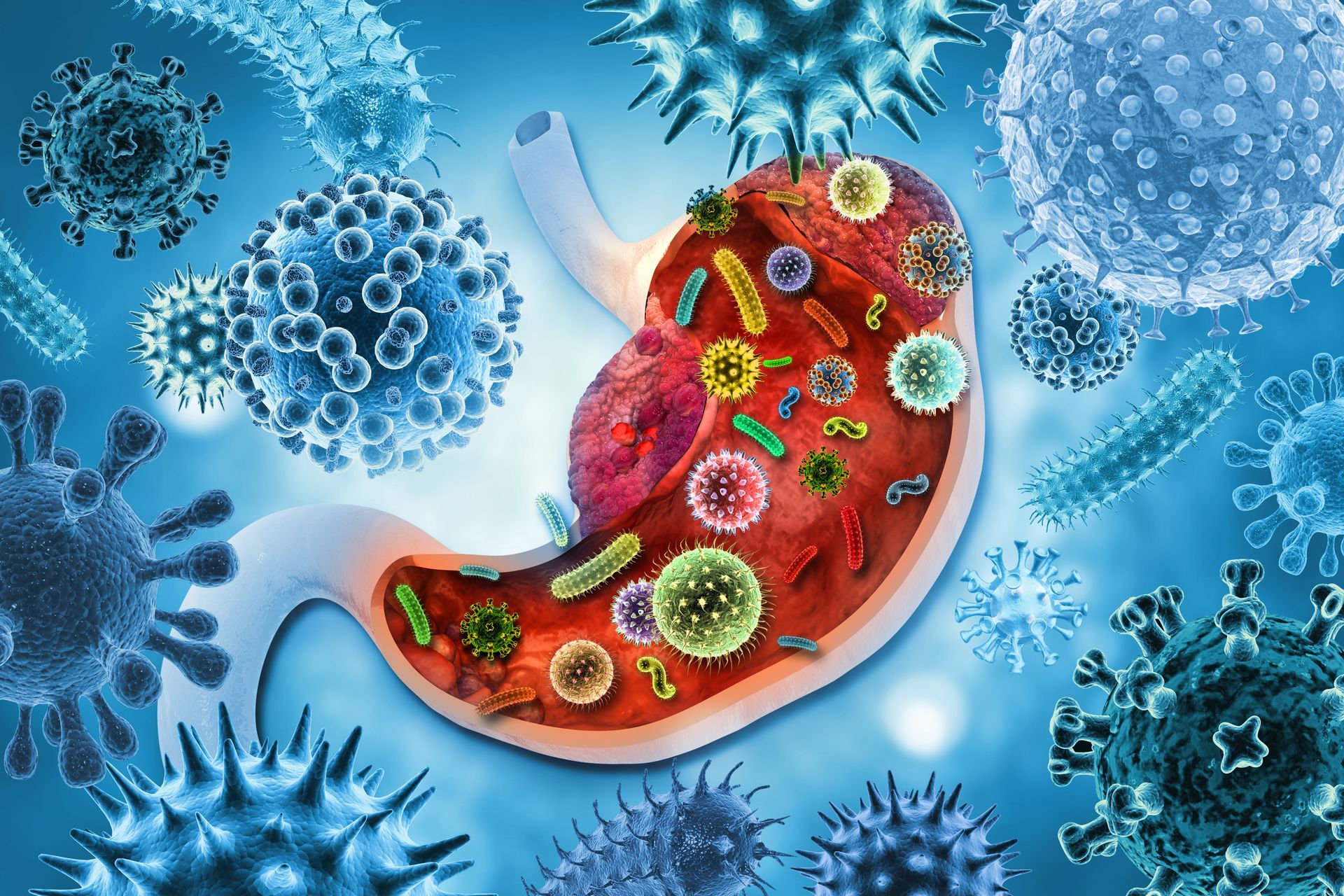Quorum Sensing: What is your gut telling you?
Quorum sensing (QS) plays a fascinating role in human gut health, acting as a communication system for the trillions of bacteria residing in our gut. Here's a breakdown of its significance and how you can apply this information to building a happier gut.
What is Quorum Sensing?
Imagine a community of bacteria in your gut. QS allows them to communicate with each other using chemical signals. As the bacterial population grows, the concentration of these signals increases. Once a certain threshold is reached, the bacteria sense they're at a high enough density and can collectively activate specific genes, influencing their behavior.

Impact on Gut Health
As you can imagine, QS is crucial for maintaining a healthy gut microbiome. This communication system regulates a variety of bacterial functions:
• Feeding a crowd - Bacteria can use QS to coordinate the breakdown of complex carbohydrates for shared benefit.
• Community protection - Some bacteria use QS to build protective communities called biofilms. Biofilms can be beneficial or detrimental depending on the bacterial species.
• Competition and cooperation - QS allows bacteria to acquire resources more easily if there is competition for them from rival colonies. Bacteria may also cooperate in beneficial activities like waste removal.
Potential for Therapeutic Intervention
Currently, researchers are beginning to explore the potential of manipulating QS for therapeutic purposes. Early results show that by influencing bacterial communication, we might be able to reduce the growth of harmful pathogens. Disrupting their communication could limit their ability to cause infections or colonize the gut.
We may also be able to promote the growth of beneficial bacteria through this method. Certain probiotic strains might then be chosen for their ability to positively influence the gut microbiome through QS.
While promising, this field is still in its early stages. Accurately mimicking the complex gut environment for research and developing specific, safe interventions for tapping into QS manipulation still poses significant challenges. However, understanding QS offers exciting possibilities for promoting gut health and potentially treating various gut-related disorders. Further research is needed to fully map its potential.
Consider supplementing with the following proven beneficial bacteria for gut health:
• Lactobacilli bacteria are well-known for their ability to produce lactic acid, which aids digestion and inhibits the growth of harmful bacteria. Some studies suggest specific strains like Lactobacillus plantarum and Lactobacillus casei might utilize QS to influence the gut environment positively.1
• Bifidobacteria contribute to gut health by breaking down complex carbohydrates and producing beneficial short-chain fatty acids. Certain Bifidobacteria strains, like Bifidobacterium longum, might also play a role in gut immune function through QS mechanisms.1

Also, consider incorporating prebiotic rich foods or supplements. Prebiotics are non-digestible fibers that serve as food for beneficial gut bacteria. Prebiotics like inulin and fructooligosaccharides (FOS) have been shown to promote the growth of specific gut bacteria, including those involved in beneficial QS interactions. However, the specific mechanisms of how prebiotics influence QS are still being studied.1
Remember that research on dietary support for manipulating specific QS pathways to gut health is still evolving. Consulting your healthcare provider regarding specific dietary recommendations for your unique gut health needs is always recommended.
For a deeper dive into quorum sensing:
• The Role of Quorum Sensing in Normobiosis: This article provides a good overview of QS in the context of gut health: https://www.ncbi.nlm.nih.gov/pmc/articles/PMC9963693/
• Quorum sensing in human gut and food microbiomes: This article delves deeper into the significance and therapeutic potential of QS: https://www.ncbi.nlm.nih.gov/pmc/articles/ PMC9733432/
1. Salman MK, Abuqwider J, Mauriello G. Anti-Quorum Sensing Activity of Probiotics: The Mechanism and Role in Food and Gut Health. Microorganisms. 2023 Mar 20;11(3):793. doi: 10.3390/ microorganisms11030793. PMID: 36985366; PMCID: PMC10056907.










